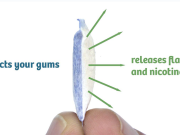
The study titled Electronic cigarettes for smoking cessation: a randomised controlled trial, was published on The Lancet earlier this month. The research was conducted between Sept 6, 2011, and July 5, 2013 by recruiting 657 adult smokers who wanted to quit. 289 of the study participants were given nicotine containing e-cigarettes, 73 were given placebo e-cigarettes (containing no nicotine), and 295 were given nicotine patches, from 1 week before quitting until 12 weeks afterwards, whilst also being offered low intensity support via telephone.
E-cigarettes have a higher success rate than Nicotine Patches
The primary results were collected after six months from quitting date, and indicated that 21 of the participants on electronic cigarettes, which equated to 7.3%, had been continuously abstinent from smoking for the whole six months as opposed to only 17 (5.8%), in the patch group. Additionally, 3 participants on the non-nicotine containing e-cigarettes, 4·1%, also managed to quit.
The research also indicated that even when some of the participants failed to quit, they at least smoked fewer cigarettes when using e-cigs in parallel, hence still minimizing some of the risks associated with smoking. “E-cigarettes, with or without nicotine, were modestly effective at helping smokers to quit, with similar achievement of abstinence as with nicotine patches, and few adverse events,” read the study abstract.
E-cigarettes are smokers’ preferred cessation aides
An article published on White Cloud earlier this month, pointed out that interestingly, the lead study author, Dr. Christopher Bullen, was struck by the fact that the study participants were more enthusiastic to try quitting via electronic cigarettes than with the help of Nicotine Patches. This fact goes inline with what other studies have found: e-cigarettes are smokers’ preferred smoking cessation tools as they mimic the action of smoking, hence make their transition from smoking to not smoking an easier one.












Pfft. We vapers could have told you that. Why not actually start asking us, instead of using money on studies where the results are already known within our community?
Because anecdote doesn’t convince decision makers in the same way as a properly conducted study does. They don’t carry the same weight or accuracy.
Properly conducted studies didn’t convince very many fucking MEPs, did they? They just distorted the results to support what they wanted to do.
Old news